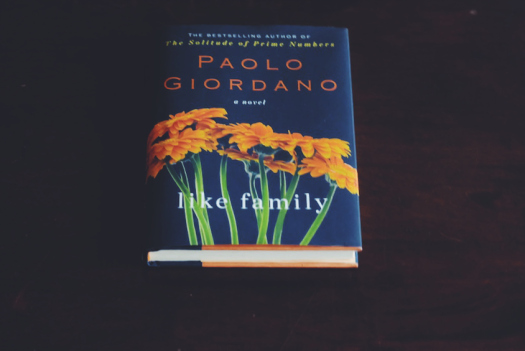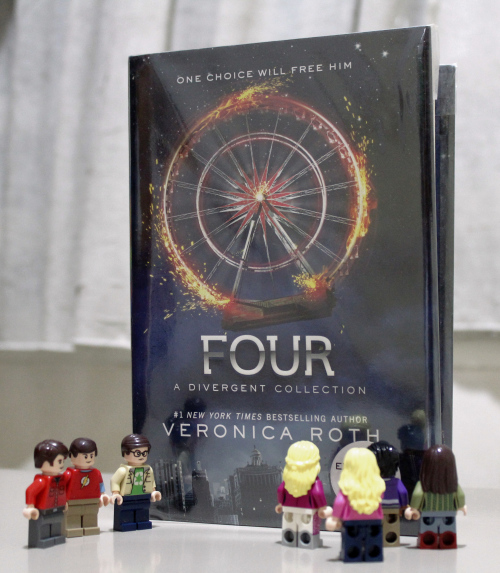
Synopsis:
When Signora A first enters the narrator’s home, his wife, Nora, is experiencing a difficult pregnancy. First as their maid and nanny, then their confidante, this older woman begins to help her employers negotiate married life, quickly becoming the glue in their small household. She is the steady, maternal influence for both husband and wife, and their son, Emanuele, whom she protects from his parents’ expectations and disappointments. But the family’s delicate fabric comes undone when Signora A is diagnosed with cancer. Moving seamlessly between the past and present, Giordano highlights with remarkable precision the joy of youth and the fleeting nature of time. An elegiac, heartrending, and deeply personal portrait of marriage and the people we choose to call family, this is a jewel of a novel—short, intense, and unforgettable.
I would describe Like Family as a pleasant afternoon read – short, easy and charming. A great way to kill some time and lose yourself in prose for a while? Oh, absolutely! A must read that will totally change your life or resonate with you on a deeply emotional level? Probably not.
This isn’t a bad novel by any means but I didn’t identify anything particularly special about it. Let’s start with the good though.
 buy the book: wordery // amazon uk // amazon us // barnes and noble
buy the book: wordery // amazon uk // amazon us // barnes and noble
The narrative moves between the past and the present very fluidly. In fact, from an author’s perspective, the structure was something that intrigued me a lot. I was slightly confused, at first, by the changing tenses and going back and forth but I quickly began to appreciate the rhythm of Giordano’s narrative. It’s one of the things that really elevated my reading experience since Like Family doesn’t have much of a plot.
It’s also a charming tale. It’s unfortunate that Giordano’s characters feel so archetypical. None of them left much of an impression beyond the fact that they are very recognizable in life. You’ve met these people. They’re your parents. Your teachers. Your significant others. They are very real.
In Like Family, Giordano gives a portrait of a family. I think what was missing from the story is a true sense of intimacy. Throughout the tale, I didn’t find myself rooting for anyone. I just kept waiting to see what happened.

I think the best stories have you rooting for or against somebody. They have you invested in what happens to the characters that are portrayed. While his rumination on this family (and their nanny) was often delicate and very well considered, I just didn’t feel much for them.
I was underwhelmed by Like Family (especially considering all the praise for The Solitude of Prime Numbers) but I can’t deny that if you take it for what it is – a simple story about a family and someone very important to them – it’s good enough for you to give a chance if you ever come across it.
And while it may not be Giordano’s best showing, it does have me excited about checking out some of his other work.
Final thoughts:
If you are looking for an intense, plot driven novel that will give you all the feels, then Like Family isn’t your novel. But if you want to experience a delicate narrative about one family and the maid/nanny that means so much to them then Like Family may just delight you.
My verdict:
★★★✩✩
Goodreads rating:
★★★✩✩

Memorable Quotes:
- “There is nothing more we can do when faced with someone’s death except devise some extenuating circumstances for it, attributing to the deceased one final gesture of thoughtfulness toward us and arranging the coincidences in some natural order.”
- “The important thing is to keep separate accounts, because love is love, but money is money.”
- “A family just starting out is sometimes like that: a nebula of self-centeredness in danger of imploding.”
- “The end does not pardon us even the slightest of faults, even the most innocent of failings.”
- “We live in anticipation, constantly waiting for something that will free us from the burdens of the present, without taking into account new ones that will arise.”
- “…and then she added one of those sentences that experience provides us with when there are no adequate words: “Maybe it’s better this way.””






